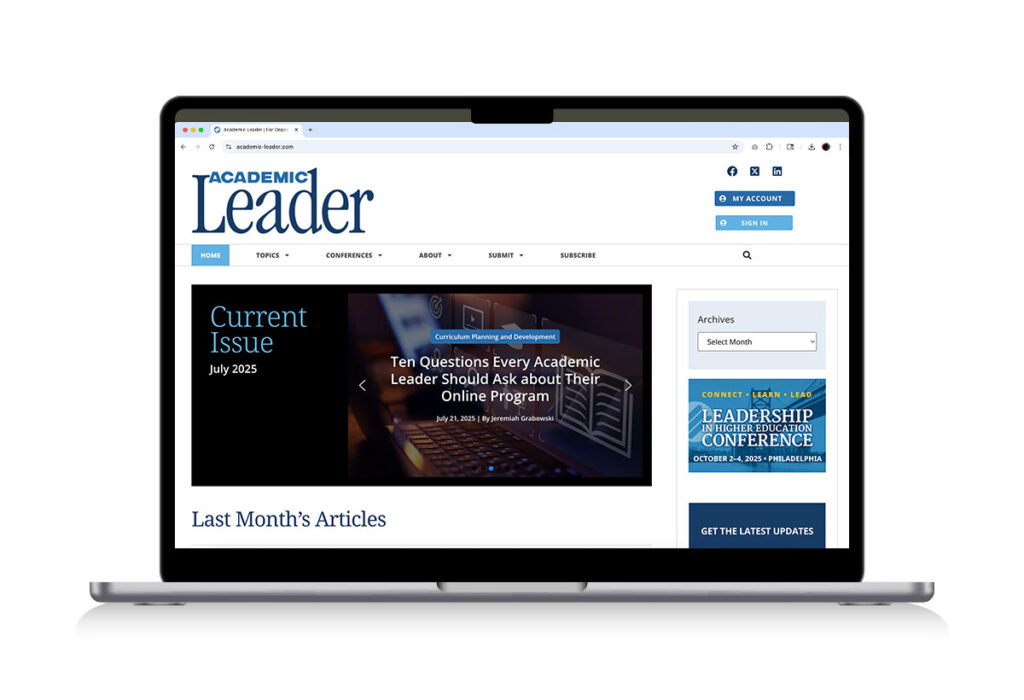Collegiality: The Cornerstone of a University (and a Profession)
Accepting and sharing responsibility for creating a productive work setting within the department and institution result, at least to a great extent, from how well each member of the community carries his or her own fair share of the common workload. The challenges faced by higher education institutions in the...
Speed Mentoring
Mentoring is a common yet powerful way for people to learn a variety of personal and professional skills. Most adults can identify a person who, at some time in their lives, had a significant, positive influence on them. While some mentoring relationships are formal, with clear goals and regular meetings,...
Is Time Up for the Credit Hour?
How do we know if a student has learned enough to attain a degree or credential? Likely, the answer is currently phrased in the form of credit hours: 64 semester hours to earn an associate’s degree, 128 semester hours to earn a bachelor’s degree, and so on. But the credit...
To MOOC or Not to MOOC? That Is Just One of the Questions!
It seems that each new day brings a barrage of articles regarding massive open online courses (MOOCs) and their successful use in education and business. Both large and small educational institutions feel compelled to respond to internal and external stakeholders about MOOC development, and for those institutions unable to partner...
Seven Ways to Combat Attrition in Online Courses
One of the biggest issues in online education is attrition. “Student retention is a noteworthy issue for higher education institutions and is closely tied to accountability,” write Melanie Shaw of Northcentral University, Scott Burrus of University of Phoenix, and Karen Ferguson of Colorado State University-Global Campus. In an article in...
Accreditation from a Positive Leadership Perspective
May we be candid for a moment? When academic administrators are alone—no faculty members or representatives of the press in sight—one of the things we complain about most bitterly is accreditation. It doesn’t matter whether we’re talking about regional accreditation of all our programs or specialized accreditation of individual programs,...
The Case for Chairs Working Beyond Their Departments
Over the past two decades, the responsibilities of academic department chairs have grown in both number and complexity. The newer work for chairs has not replaced traditional duties but rather has been layered on top of them. Many of the emerging chair responsibilities are related to calls for accountability, expectations...
10 Things I Never Knew about Being an Academic Chair
My professional goals have always included teaching but never administration. I tended to be a bit judgmental and suspicious of administration. However, after five years in an elementary classroom and 19 years in a university classroom, circumstances led me to take the plunge into higher education administration. Having served as...
How to Evaluate Your Faculty Development Services
Faculty developers across the nation are working on developing methods to evaluate their services. In 2010, the 35th Annual Professional Organizational and Development Network Conference identified assessing the impact of faculty development as a key priority. It was this growing demand that spawned my interest in conducting a 2007 statewide and...
How to Select a Department Chair
In most academic departments, chairs are elected—or at least recommended to the dean—through a vote of the faculty. At other institutions, the chair rotates among the entire full-time or tenured faculty, while at still others the upper administration appoints the chair either from among current members of the department or...













